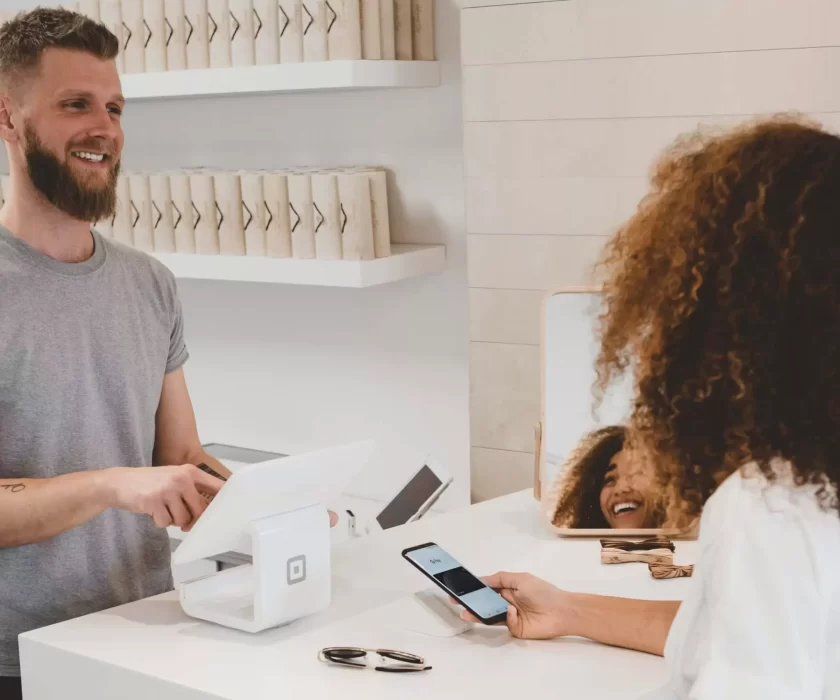How well you do in business will come down to your ability to influence your market.
Yes, it really is that simple.
In fact, remember the 3 ways to grow a business, from my last email?
We talked about the ‘what’…
But what about the ‘how’?
How do you bring in more customers through the front door?
How do you increase the average order value?
How do you increase the frequency of transactions?
Influence.
There’s a famous book all about this topic called “Influence: The Psychology of Persuasion”.
In it, the good ol’ doctor Cialdini explains why people say ‘yes’…
He lists 7 factors that play a role in getting that ‘click’ to happen in someone’s brain where they decide to take action.
Over the years, I’ve added a few more factors and come up with the ultimate list.
Here we go…
- A hungry market
Sorry to start with a tricky one. You might be thinking “how do I control how hungry my market is?”. Well, the easiest way is to choose the right market.
Unless you’d rather sell ice to an Eskimo, you really need to choose a hungry market. What does that even mean?
It means your prospect tosses and turns at night because they have a problem that’s driving them mad.
Or they have an urge that cannot be contained.
Or they have insecurities and fears that they can’t turn off.
What do you think Louie Vuitton sells? If you said luxury bags, it’s a good thing you’re here. Because I’m about to get meta.
LV sell status. The bags just happen to be product they chose to deliver the status.
So what’s the market LV sells to? People who desire status. And is that a hungry market? You bet it is.
Now, before we move on – I will say this…
Yes, it’s possible (but very hard) to manufacture desire, or essentially to ‘create’ a hungry market. But that’s not the road you should take, unless you’re a billionaire.
Just for fun, let’s come up with an example.
And while we’re at it, let’s make it an evil example.
If you have a product, but it doesn’t solve a problem – one could CREATE the problem. So if you sell weapons, you could instigate a war. Or if you sell medicine, you create release an illness.
That reminds me, I should really catch up on conspiracy documentaries. Been a while… 😉
Anyway, whether evil or good – manufacturing a market is not something I would suggest you pursue.
But when you choose a hungry market, who needs a solution to their desire or problem – you’ve already put yourself on the winning path.
Don’t be the person trying to market something no one cares about.
The more it’s a NEED, the better.
- White-hot desirable offer
I wish choosing a good market was good enough. But in today’s environment, it rarely is.
Unless you’ve stumbled into a field with no competition and endless demand, you also need to have a good offer.
An offer is simply a value proposition.
The more the value equation is enticing in the mind of your customer, the easier the sell.
The critical thing to remember is this:
It’s about perceived value. It’s not an objective science. And it’s certainly not just about price.
Apple might be more expensive than their competitors, but in the mind of their customers – they offer more value.
So what contributes to the value equation?
- Perceived quality
- Ease & simplicity
- Reputation & status
- Guarantees
- Bonuses (stacking more value)
- And many more factors
If I could sum it up succinctly, it would be like this –
How do you craft an offer that’s irresistible? An offer so white-hot, that a customer would feel an uncontrollable urge to act on it? An offer so sizzling hot, they would feel stupid to pass up.
And of course – an example… behold! The offer that built an empire…
“Fresh hot pizza in 30 mins or less… or it’s free!”
Yes, that offer really did build Dominos into an international success story. Of course, they stopped it when people started dying from car accidents – but many experts believe it was that offer that provided the momentum for what it is today.
By the way, you should never eat the so-called ‘pizza’ from Dominos. If you do, you should really unsubscribe from my emails 😉
- Authority
The third element of influence is authority, real or perceived.
This one is simple. People trust authority figures.
It gives us an easy easy way to filter information so we can decide what to believe.
When someone in a white lab coat speaks, we tend to take their words a little more seriously.
Or if they have some letters before or after their name.
Or if the company has certain certifications or if they’re part of a certain group.
Even the way people speak will affect how much authority we assign to them.
So there are many factors. You simply want to stack as much authority as possible.
- Social Proof
Social proof is a very powerful one. From “as seen on” logos, to celebrity/influencer shoutouts, to customer testimonials – people want to see what the community thinks of you.
Much of this can be manufactured and manipulated. But it’s important to understand, because all of these factors will unconsciously affect how your prospect feels.
- Scarcity
Yet another one that is often manufactured and used unethically. Scarcity is when you limit the supply of your product of service. You make it ‘scarce’.
This should always be done honestly, otherwise people will eventually stop trusting you.
But if you have a limited quantity, or limitation on your time or other restriction – then you should communicate this and play on it to increase demand.
You can also ‘imply’ scarcity by the way you speak and your body language. If you seem desperate and needy, people don’t generally respond well to that.
But if you know your value, and present yourself or your service as something truly valuable, you will imply scarcity and people will naturally want to work with you.
- Liking
Yes, it really has come to this! Believe it or not, people want to buy and deal with people and brands they like! Shocking, I know.
All I’ll say about this is be yourself, be honest, and don’t be an ass to people.
- Reciprocity
This is a fascinating one, and it could be your secret weapon in business.
You know how beauty brands give out free samples?
And authors give out free chapters?
And service providers give out free quotes or consultations?
Well, that has 2 purposes. Not only does it give your prospect a taste of your brilliance. But there’s a deeper psychological pathway that many people don’t realize.
The law of reciprocity.
It states that when people receive value, they instinctively feel the urge to reciprocate the value.
It’s truly incredible. The more you give, the more you seem to get.
And some people have truly pushed this to the edge. But it really does hold up.
So figure out ways to provide value to you prospects and ask for nothing in return.
Something magical will happen! Your business will grow!
- Consistency/commitement
This is a subtle one, but quite important.
And it’s the perfect segment from the last factor. When people make a small commitment, they’re more likely to take another step with you. And the deeper they enter ‘your world’, the more likely they’ll stay (unless you do something silly).
I also like to think about consistency in another way. Every interaction the prospect/customer has with you – the experience itself should be consistent. I’m talking about your branding, messaging – your overall brand ‘feel’. When you go to a Nike store, you know what to expect. Don’t make any part of your customer’s experience jarring.
- Risk Reversal
Reversing risk is most important when you’re acquiring a new customer. They haven’t dealt with you before. All kinds of ‘what if’s are going on in their head.
The fastest way to overcome this, is to simply remove the risk from the prospect, and put it on you instead.
I mean, if you’re confident about your produce or service, then what are you worried about?
You can reverse risk is many ways. Trials, guarantees, warranties, samples, using education etc.
The most powerful risk reversal is to get as close as possible to making the end result guaranteed. This is not always possible, but the closer you get – the higher your conversion rates will be.
Risk reversal is of course very related to crafting an offer. So work on offers that include outrageous guarantees. This might be a little uncomfortable, as you confront your fears – but this is how the best companies grow.
- Frictionless, elegant experience
This is a factor that has become more and more important.
Companies like Amazon have spoiled customers. They have the best engineers in the world crafting experiences that reduce FRICTION. And it works. People love it when you can take away the crap and give them a seamless experience.
If you simply reverse engineer the processes of Amazon and Apple, you’ll understand this better than most.
Then go through your own customer experience, and see where you can remove friction and create a more elegant, hassle-free process.


